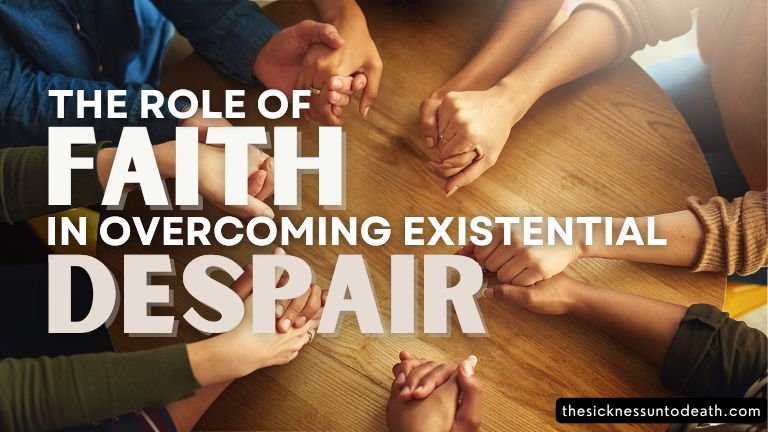In our fast-paced, achievement-oriented world, it’s not uncommon for individuals to feel a deep sense of despair. This isn’t just about feeling sad or going through a rough patch; it’s a profound existential despair that questions the very purpose of life. Over a century ago, the Danish philosopher Søren Kierkegaard delved deeply into this subject, proposing that true resolution comes from an often-overlooked source: faith.
Kierkegaard, often hailed as the father of existentialism, argued that existential despair arises when there is a disconnection within the self—specifically, a separation from the eternal aspect of our beings. According to him, every person is made up of both finite and infinite dimensions. The finite involves our daily, mundane activities, while the infinite relates to our eternal values and the endless possibilities of our existence. Despair emerges when we lose sight of our infinite dimension, focusing solely on our finite problems and successes.
For Kierkegaard, the solution lies in embracing faith. This isn’t necessarily about religious dogma or attending church, though it can be for some. Rather, it’s about developing a profound trust in the inherent worth of our own existence and in the values that transcend our immediate, tangible experiences. Faith, in Kierkegaard’s view, is a commitment to believe in our own value and the value of our life’s journey, despite the absence of empirical evidence and in the face of life’s inevitable suffering and challenges.
This type of faith provides a powerful antidote to despair. It reconnects us with our eternal self and aligns our day-to-day living with deeper, more enduring truths. Faith challenges us to find meaning in the paradoxes of life and to see our struggles as part of a larger narrative. In practical terms, this might mean choosing to act with kindness and integrity, even when it’s difficult, or finding the courage to pursue a calling that aligns with our deepest convictions, regardless of societal expectations.
Kierkegaard’s insights are particularly relevant today when society often emphasises superficial success and material accumulation. These pursuits can lead to a disconnection from our deeper selves, fostering a type of despair that’s difficult to articulate but intensely felt. In contrast, faith—understood as a deep belief in our own worth and in the purpose of our struggles—empowers us to live authentically and passionately, regardless of external circumstances.
For anyone wrestling with existential despair, Kierkegaard offers a compelling perspective: reconnect with your eternal self through faith. This faith isn’t passive; it’s an active, daily choice to believe in your own worth and the meaningfulness of your life’s journey. It’s about seeing beyond the immediate pressures and recognising that you are part of a larger, more mysterious, and infinitely significant story.
Thus, embracing faith, as Kierkegaard describes, can transform the way we live. It doesn’t remove life’s challenges or complexities, but it provides a framework for understanding them and a foundation for resilience. By believing in the broader significance of our experiences, we can navigate life not with despair, but with a deep-seated hope and a renewed sense of purpose.

